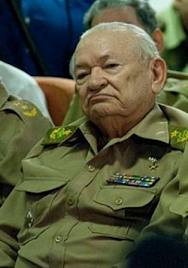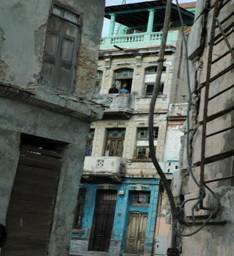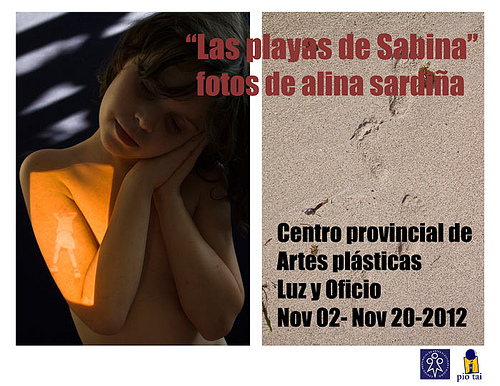The phase of foul play against the exterminating Angel of the youth wing of Spain’s Ruling People’s Party will be tomorrow, October 5th, 2012
It’s rumored that his interrogators, in imitation of King Juan Carlos facing some babbling idiocy from Chavez, have forced him to remain silent and not make a fuss: “Angel, why don’t you shut up already?!”
We will see each other on the 12th in the cafe at the Spanish embassy in Havana
Before Carromero and After Carromero
Anything he says will be used against him. His biography itself accuses him: speeder with dozens of fines, entangled in matters of finance, twitterer in favor of the cuts of the Spanish government while dancing drunkenly in Seville.
Angel Carromero, in addition to being a member of a party considered fascist in Cuba (in imitation of Comandante Hugo Chavez), had his 15 minutes of infamy this first Friday of October, when he was condemned in a brief trial (according to the dictates of our Foreign Minister), where no Cuban demands anything at all from this Iberian.
It doesn’t stop drizzling in Havana lately. After the flood of more than a hundred thousand hours with Fidel, the Socialist State is mired in its transition to a Chinese-esque capitalism light, where the only thing that won’t fit well are the rights of the Cuban people, on the Island as well as in the Exile. And Angel Carromero will be a key piece in this unlikely vaudeville against all and for the evil of all. Although the coquettish prisoner from Spain’s People’s Party doesn’t imagine it on his Cuban Communist scaffold.
Only a foreign “enemy” fully immersed in “subversive activity” within the Island could be a pretext for the violent death of Oswaldo Paya Sardinas. A death announced for years by paramilitaries, even in front of his own family (and foreigners, to openly disseminate the terror of such an exemplary punishment). Well then, promise kept. There are things that the Castro regime doesn’t play with. Things about which the Castro regime never lied. Those who lack the revolutionary genes to assimilate this sinister sincerity, we don’t want them, we don’t need them…
That fateful Sunday of July 22, hours after the impact and the text message in Swedish heatedly typed after the harassment, in a hospital in the provinces and without evidence of urgent intensive care, another pillar of the Christian Liberation Movement also died, Harold Cepero Escalante, who survived the crash conscious but it didn’t occur to anyone to take a declaration from him (or to allow his family to see him before he died).
Much less do we know the testimony of the ambulance attendants, forensic doctors, and the security personnel who, within minutes, seized this stretch of highway and the city of Bayamo (who alerted them that the ID card of the dead-on-impact read: Oswaldo Paya Sardinas, putative president of post-Castro Cuba?). Only some half-literate peasants declared with precision on Cuban TV that the death car was traveling at a rate of speed of more than 60 mph: “a tin can…”
That dawn, as Oswaldo Paya Sardinas left home without saying goodbye to his wife Ofelia Acevedo Maura, the apocryphal Twitterer @Yoahandry8787 had already revealed in real time his trip to the interior of the country, misrepresenting that it was an excursion to the beach in Varadero. Indeed, nearly a decade before, in the official book “The Dissidents,” we could enjoy some photos violating the privacy of the vacationing Paya-Acevedo family.
There, a teenager of 14 appears to look into an empty future while her father dives and disappears under the grayness of the sea. It was Rosa Maria. It is Rosa Maria, suddenly become, today, the new leader of the Christian Liberation Movement (MLC), the principal moral voice of recrimination against all the violence of the State that corralled her citizen father from the time she was born. Rosa Maria Paya Acevedo, accused before she opened her mouth of meeting false foreign tourists at the edge of the sea for a handful of euros, to fund the youth wing of the MLC.
Not one of the loved ones of Oswaldo Paya Sardinas or Harold Cepero Escalante is accusing the exterminating angel of the New Generations of the People’s Party. The State enterprise that owns the Hyundai Accent with license plate T311402 has not publicly demanded compensation for a single screw of its vehicle. Nor has any rice or forest cooperative spoken out in defense of the crops mowed down by the scars of the homicidal tree. It is a case, then, where legally no one is affected, except governmental innocence.
After the videoclip presented to the press, where a young Spanish politician asks the world not to politicize his case (filmed by the political police, but that’s a circumstantial detail), we already know Angel Carromero’s worst enemy will not be the Cuban State, but the drugged panic of Angel Carromero himself.
At the right hand of his steering wheel, like a perverse character of Perrault or the Brothers Grimm, a Social Democratic Swede snored through the nightmare under the midday sun on a pavement under repairs and a slamming on of the brakes at top speed. According to his testimony and with “European soil under his feet,” and despite his dreamlike innocence, Jens Aron Modig was also taken prisoner and held incommunicado in a windowless room, where his interrogators offended him with impunity, until they coerced him to testify against himself on camera.
From Kafka we know that justice in totalitarian systems is never interested in the Truth, this bourgeois prejudice of the Gospels. Much less in Life, this bizarre statistic. Angel Carromero, the talking cadaver, like the American Alan Gross, and countless Cubans who have been through the experience, declared like a ventriloquist that he still holds out a certain hope that he will come out safely. It’s called self-preservation and is a symptom of the mediocrity with which the old Europe of the 21st Century throws a tantrum.
In extreme situations, democracy is only for oneself. Western Christianity, then, has no neighbors. Angel Carromero wants to be Angel Carromero, even though he’s sunk in a concentration camp or humiliated in the cemetery where two human beings were plunged and disappeared under the grayness of the Sea.
The drizzle will not stop these days in Havana, before Castro and after Carromero. When this Friday the 5th what we all know and don’t know how to pronounce is finally verified, a new Cuban era in the history of the Revolution will commence. We will all be more alone, more desolate, more exposed to the paparazzi lenses that pornographically exposed his family and later expired Oswaldo Paya Sardinas.
As in the foundational good times of a cynical more than civic war, we will go quietly to survive under the obscene downpour. The free exile will be a million euros farther away than now. The pro-human rights solidarity activists will prefer to operate in any other corner of the world. The Chinese scribbles and the squeal of this collectivist language will make a little more sense to our individualistic sensibilities. The unethical etymology of the word “disappeared” will suffer a terrible updating. In a small air-conditioned room in eastern Cuba, the year zero of the Carromero cosmology is about to begin. Praise be.
Translated from the original in Diario de Cuba
October 4 2012


















